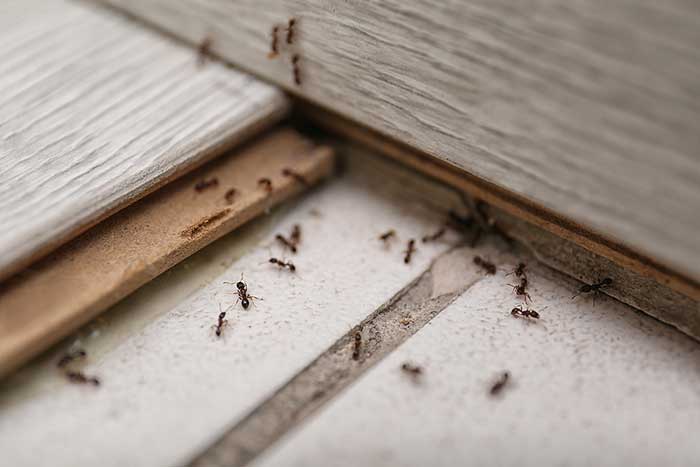Bugs are not welcome inside your home. Depending on what type of bug they can simply be a nuisance or they can be dangerous to your health. Bugs like mosquitoes carry a wide range of diseases, many of which are not pleasant.

Of course, there are also bugs that attack your homes, such as the carpet beetle, certain species of moth, and even spiders. None of which will pay you rent but they will make your life a little less comfortable.
Fortunately, there are several steps you can take to help keep the bugs out of your home, without getting your local and reputable pest control expert every month. Their annual visit should suffice.
1. Professional Visit
The key to successfully bug-proofing your home s to get a professional in. You can learn more here about your local expert. A professional is trained to identify the issue and eliminate bugs. But, they are also trained to prevent bugs from getting in.
It’s worth spending out on an extra visit from your pest control expert as this will allow them to inspect your home and tell you where the bugs can gain access. They can resolve the issue for you or leave you to take remedial action yourself.
Whichever option you choose, it’s worth having the trained professional look over your home to ensure it’s as bug-proof as possible. Don’t forget, it’s impossible to be completely bug-proof as they can squeeze in when you open and close the door for yourself.
2. Sealing Gaps
Bugs will follow light or heat, allowing them to get through the smallest of gaps in your walls and into your home. You have to walk around your home looking at all the walls, especially around your doors and windows.
The aim is to find any gap or crack that would allow a bug into your home. As you look remember how small bugs are. Any gap or crack you find must be sealed up to prevent them from getting in.
This is an exercise you should repeat regularly to ensure your home remains protected.
Sealant, cement, or even cladding your home are all valid options to help protect it from bug attacks.
3. Bug Nets
With the walls sealed the weakest point is your windows and doors. These offer nice easy openings for bugs to enter your home, especially if they don’t fit snugly.
The first step is to ensure they fit perfectly, preventing any gaps that would allow a bug in. If you find any a door seal will often be the best answer. It doesn’t just keep bugs out, it can prevent draughts in the colder months.
You’ll also need to add nets to your doors and windows. The finer the holes the better as you don’t want the bugs being able to get through. There are plenty of companies offering dedicated screens for windows and doors. These should be easy to fit and will allow you to have the windows open when it’s hot without filling your home with bugs.
Doors can be slightly more complicated as you need to open and close the screen to enter or leave your home. This gives the bugs a chance to enter as well. The best approach is to add a door screen to your door, and a bead or mesh curtain.
If the bugs come through the screen as you open it, they are unlikely to make it past the curtain. It will be too heavy for the small bugs to push aside.
4. Remove Damp
Bugs, like humans, need water to survive. In fact, some bugs, like mosquitoes, need water to breed. You need to check your home for leaks and dampness.
The best thing to do is to check the water meter reading and then don’t use any water for an hour before checking it again. If it’s changed you have a leak and need to find it and fix it.
Eliminating moisture and standing water makes your home less attractive to bugs of all types. It’s an easy step and can even save you money on your water bill.
5. Traps
There are various additional steps you can take to help keep the bugs away. Essential oils are known to repulse several bugs, peppermint and citronella are particularly good. You can place an oil burning on the windowsill to help make your home less appealing to bugs.
Sticky traps can help to capture flies and even mosquitoes, the trap won’t deter them but catching them will prevent them from coming into your home. It can also help you to identify the biggest bug threat in your area.
It’s also possible to plant certain herbs and flowering plants that keep bugs away. Again, it’s best to know what bugs you are most likely to be dealing with as this will allow you to choose the right plants.
Getting expert advice along the way will be beneficial.
